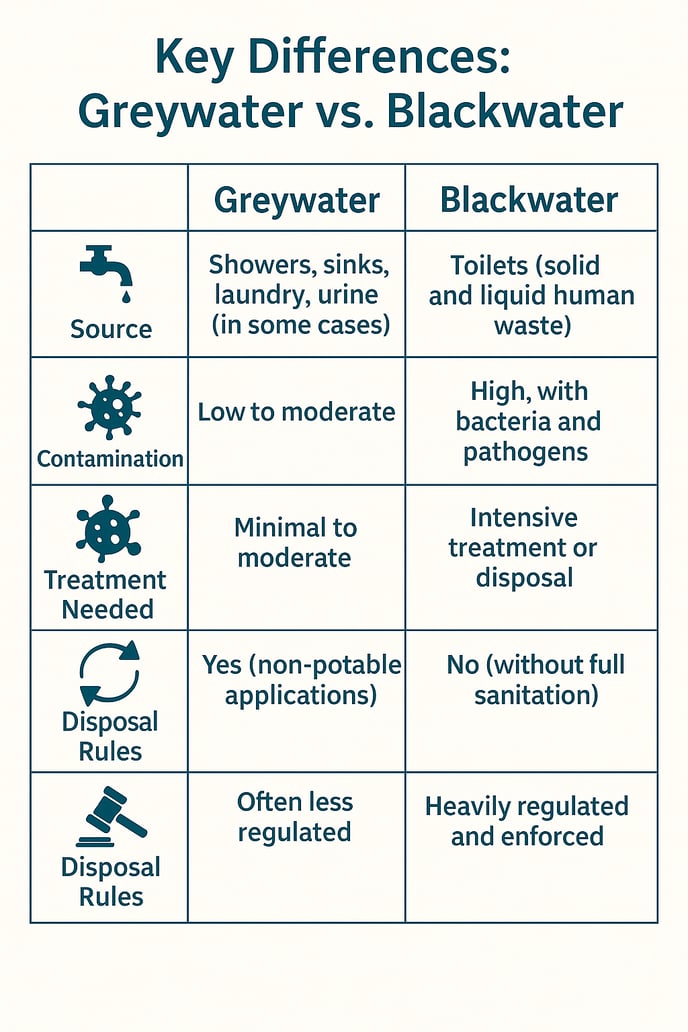Greywater vs. Blackwater in RVs, Boats, and Cabins: Everything You Should Know
A smart guide to managing water waste off-grid—without the stink or stress When you’re living off-grid, on the road, or floating in open water, how you handle wastewater matters more than ever.
What Is Greywater?
Greywater is relatively clean wastewater that comes from daily household activities like:
-
Sinks
-
Showers
-
Bathtubs
-
Washing machines
-
Occasionally kitchen sinks (check local codes)
What’s in Greywater?
Greywater typically contains:
-
Soap and shampoo residue
-
Dirt and skin cells
-
Laundry detergent
-
Food particles (if kitchen water is included)
Importantly: Urine from a composting toilet, like the OGO™ ORIGIN or NOMAD, can be treated as greywater in many systems because it’s sterile and free of solids, but depending on set-up and frequency there may have odors develop. We suggest frequent dumping of urine and weekly flushing with hot soap water to prevent issues.
Why It’s Useful
With light filtration or treatment, greywater can often be reused for:
-
Irrigating non-edible plants
-
Flushing toilets
-
Washing vehicles or tools
-
Dust suppression
This makes it a popular choice for water conservation in off-grid and mobile setups.

What Is Blackwater?
Blackwater is wastewater from your toilet. It includes:
-
Solid and liquid human waste
-
Toilet paper
-
Pathogens and bacteria
-
Strong organic matter and odors
Blackwater is considered hazardous waste and must be treated or disposed of through:
-
An RV or marine pump-out station
-
A properly functioning septic system
-
A municipal sewer system (via home hookup)
Unlike greywater, blackwater cannot be reused without extensive treatment.